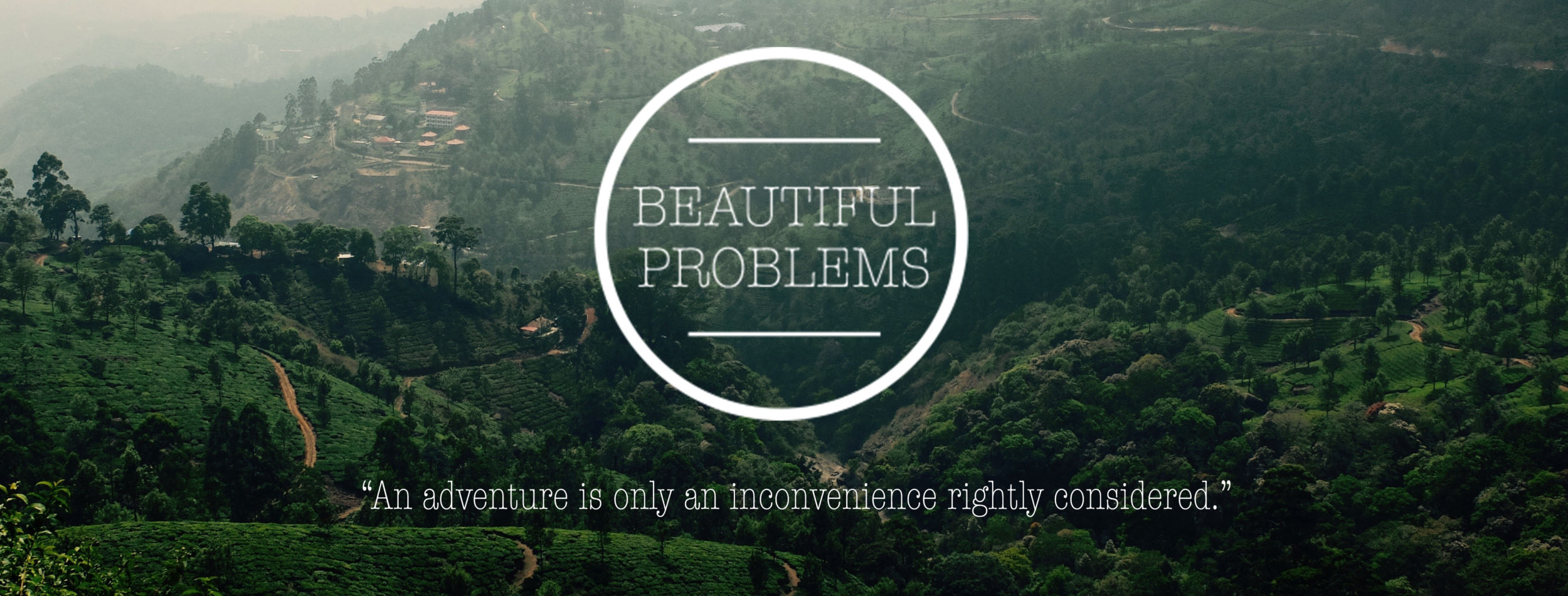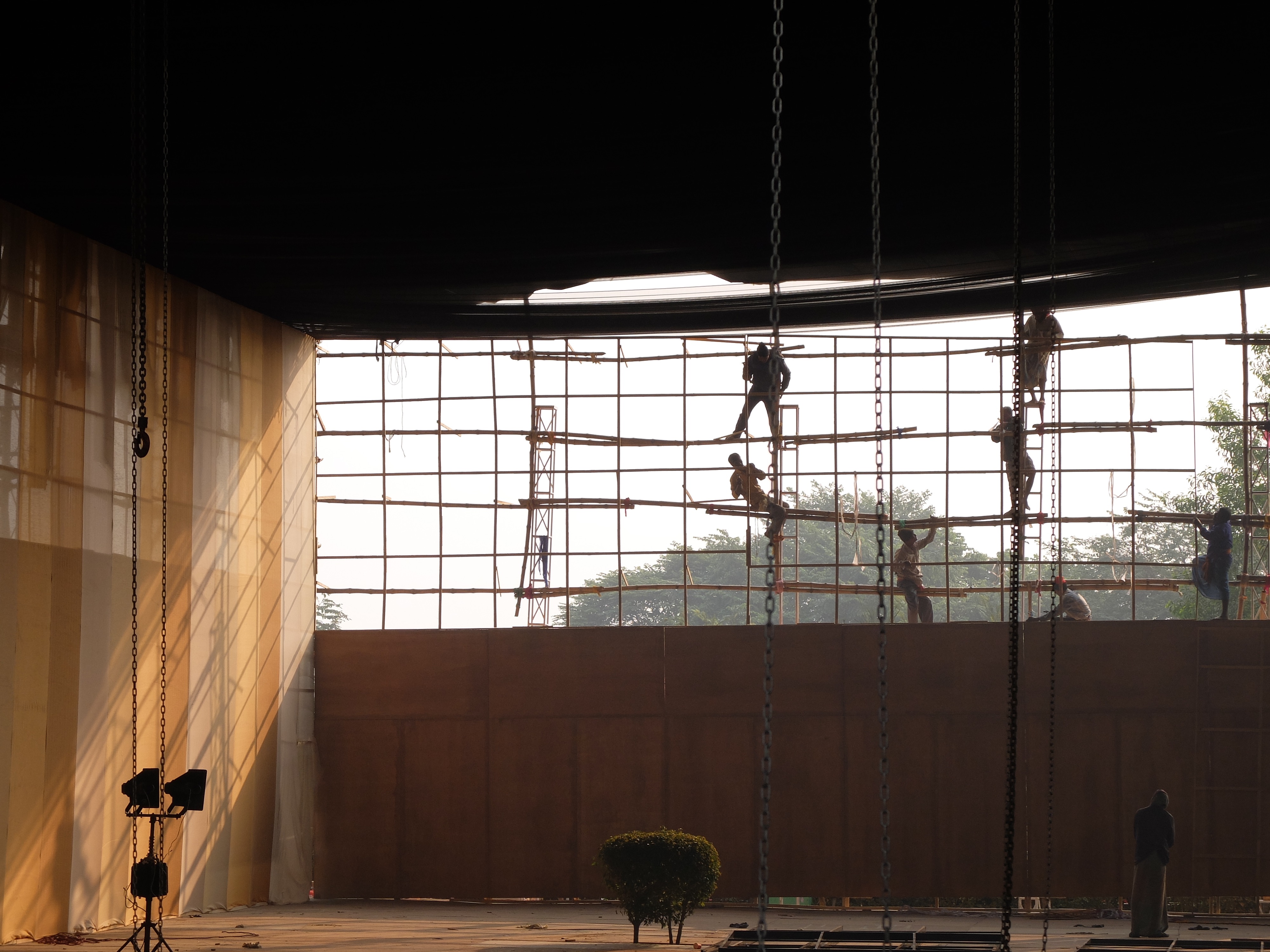This post is part of a month long trip I just took to India. If you’d like to read the Prequel, please click here.
Unlike other countries, India starts at the airport. As soon as you exit the sliding doors India is there waiting politely for you tearing at the chain, slobbering, barking and excited to see you. Crowds push, people stare and point, cars honk and brakes squeal. Drivers wave hands at you and hold doors open to round, yellow, beat-up looking taxis which you quickly find have no seatbelts, no mirrors and occasionally no brake lights. Overtaking, merging, and indicating are all done with the horn.

Roads are in theory British-oriented, but in reality opportunist-oriented. Two lanes become four, right of way is determined by size of vehicle or loudness of horn, smaller vehicles and pedestrians go where they please on either side of the road while the river of traffic flows on around them.
We are here to perform with Cirque du Soleil, for a 70-million dollar wedding built in four days by hand tools. Rehearsals don’t start until tomorrow, so we drop our bags at the hotel and go exploring.
We visit a museum (Indian entrance fee, 20 rupees; Foreigner’s entrance fee, 200 rupees), the most interesting part is the guards’ rifles with bayonets on them, presumably in case a civil war breaks out that they’d need to quell. Wouldn’t be surprised if they were ball and powder muskets, they’re about five feet long. Our experience here and throughout our trip in India is that the attractions you have to pay to see are nowhere near as interesting as the raw, pulsing artery that is daily life in India.




India is a river of cows and dogs and whole families on motorcycles and rickshaws and bicycles and buses. India is barefoot workers with no harnesses on bamboo scaffolding 50 feet in the air. India is horns all the time. India is amazing food and India is getting sick from swimming in an outdoor pool too soon after it rained because of pollution. India is people taking pictures of you because you’re white and India is us taking pictures of them because they are getting a haircut in the street. India is little boys hanging out the open doors of moving trains. India is colorful clothes and covered arms and exposed stomachs. India is a row of bottled water bottles, each with a different level of water.
—
The first day of work we arrive and are greeted by the sight of hundreds of workers crawling, climbing, scurrying barefoot or in sandals up bamboo scaffolding 60 feet in the air. Some lean out into space, hanging on one-handed while they weld a joint without masks. Who needs a circus, we ask ourselves. One of the local organizers comes up to me while I’m taking pictures. “You must be surprised to see them work like this: No helmets, harnesses or life vests. But if you gave them that stuff they wouldn’t know what to do with it, they have worked like this their whole lives.”




For this wedding they will bring in 250,000 flowers from Germany, silk from China. Lil Wayne will perform on another hand-built stage the day before us. It’s hard to make sense of, to be dropped in the middle of it all. We have rich and poor too, but it is so transparent here. India, the land of everything and nothing.
Driving back to the hotel we pass an entire family on a motorbike, women riding sidesaddle in saris. Cows. Dead dogs. Abandoned buildings without walls but clotheslines strung full of clothes. Across from the gated Eden of the wedding is a slum town built of trash bags, walls of garbage, rags and God knows what else, men warming their hands on a cow-chip fire.



How should I feel taking pictures of this? Like it’s entertainment? But no, we feel remorse, we feel the unfairness of the hands we’re dealt, even when we hold the high cards. Circumstance does not make us bad people. We are all people, gawking at other people. Look at their skin, their clothes, their things. Look at how they live.








We did not do this. This inequality existed before we got here, and it is not exclusively between us- it is also between the people that brought us here and those they hired to work for them. The people hosting a 70 million dollar wedding and paying their workers 3 dollars a day. From our Cirque du Soleil van we wave and smile to people on the bus and they wave and smile back, excitedly shake their friends’ shoulders to turn and see us. Everyone is happy and there is only this moment, people connecting with other people. Is that too naive? It is to be the first of many times previously harmonious moral principles come into conflict with each other and evoke questions that will travel with me this entire trip.







